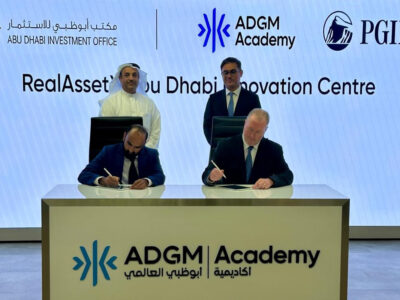When I ask an audience who they think our most important export partners are, most might be able to name the United States, China and, collectively, those within the EU.
But Britain’s third largest non-EU exporting bloc is easier to overlook: the GCC.
From high-tech manufactured goods and life-saving pharmaceuticals, through to our world-class food and drink exports, worth £597 million alone, British trade with the GCC totalled a remarkable £30 billion last year – even in the face of the pandemic.
Since leaving the EU and taking back control of our trade policy, we have been striking deals and forging deeper economic ties with new, fast-growing markets around the world. We now have deals with some 68 non-EU countries, covering trade worth £197bn in 2020 – from Canada to Kenya, Mexico to Japan.
We have now set our sights on a trade deal with the nations of the Gulf Cooperation Council. Last week, we kicked off our domestic preparations for a comprehensive trade deal with the GCC – starting with a consultation seeking views ahead of the start of negotiations next year.
This gives British businesses and the British people a unique opportunity to contribute to the process, shaping the United Kingdom’s trade policy with an important trading partner. I am especially interested to hear from British firms already operating in the Gulf.
A trade deal with Gulf nations would take our relationship to the next level, liberalising trade and improving opportunities for British business, whether they are in the United Kingdom or here in the region.
That’s why over two weeks, I am traveling to Oman, Qatar, and the UAE to help further enhance trade and investment ties across the Gulf and unlock new opportunities for great British businesses.
While in the UAE, I will co-chair the seventh meeting of the United Kingdom-UAE Joint Economic Committee (JEC), as we look to strengthen bilateral relationships across the region and increase cooperation on a range of issues including market access, qualifications recognition, and enhanced collaboration in priority sectors such as healthcare and energy.
Strengthening links with allies around the world in this way deepens our partnership on matters beyond trade. It brings people, and nations, closer together: how much easier is it to have a frank conversation with a friend rather than a stranger, to bring them round to your point of view? For example, Australia has included a specific article on climate change for the first time ever in the trade agreement we are striking with them. It isn’t just goods and services we will be exporting if and when we land this deal.
This is an exciting new chapter in the relationship between the United Kingdom and GCC nations. It paves the way towards greater collaboration and opportunities in the future – delivering valuable investment; securing our mutual prosperity; and creating more higher-paid jobs in both the United Kingdom and the Gulf. Trade is inherently great news for everyone involved.
And, as we forge a new future as Global Britain, it is right to take her trading relationships to the next level around the world: rebuilding old trade routes, regaining our access to fast-growing friends, and realising untapped trading opportunities for the 21st Century.





